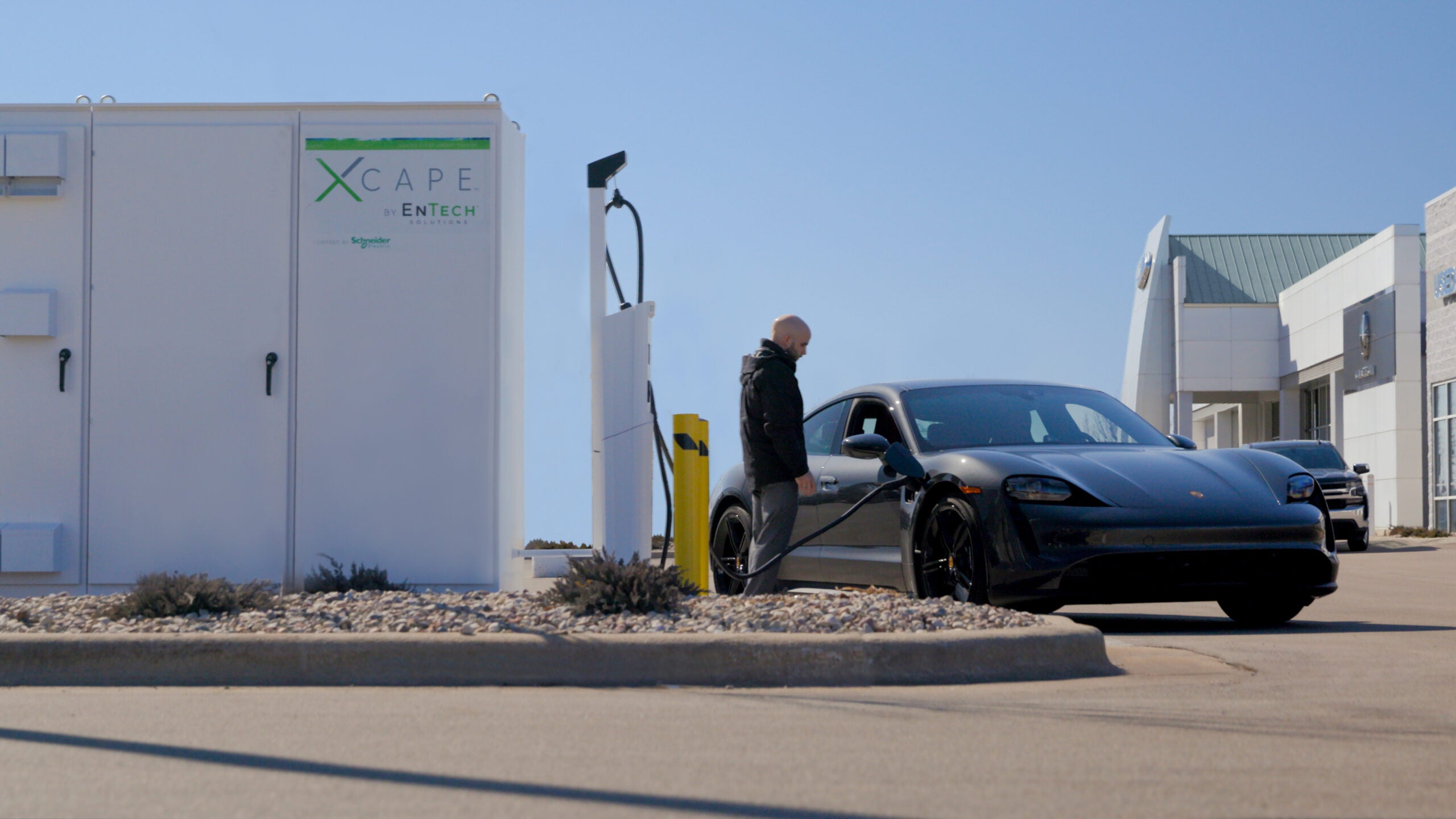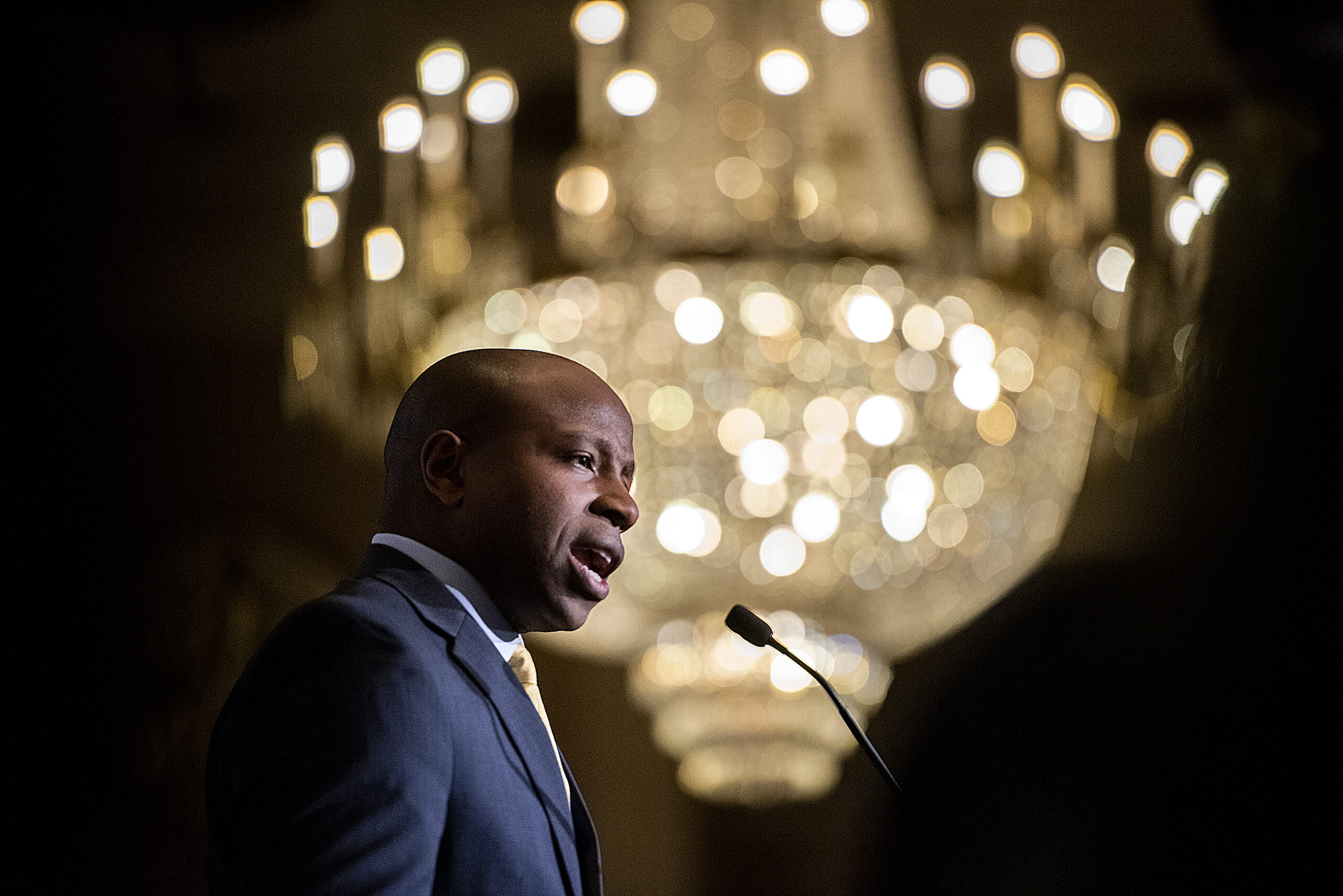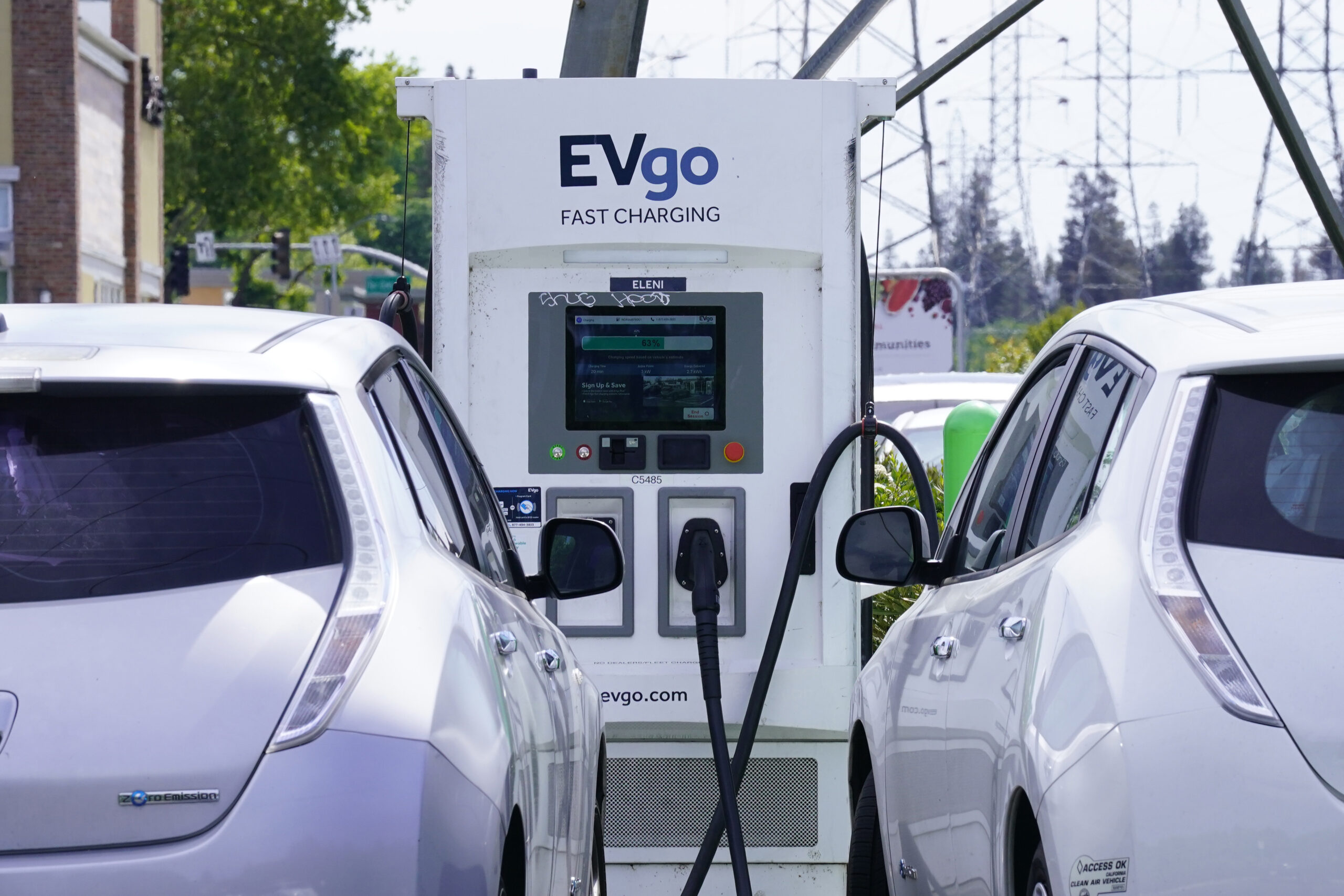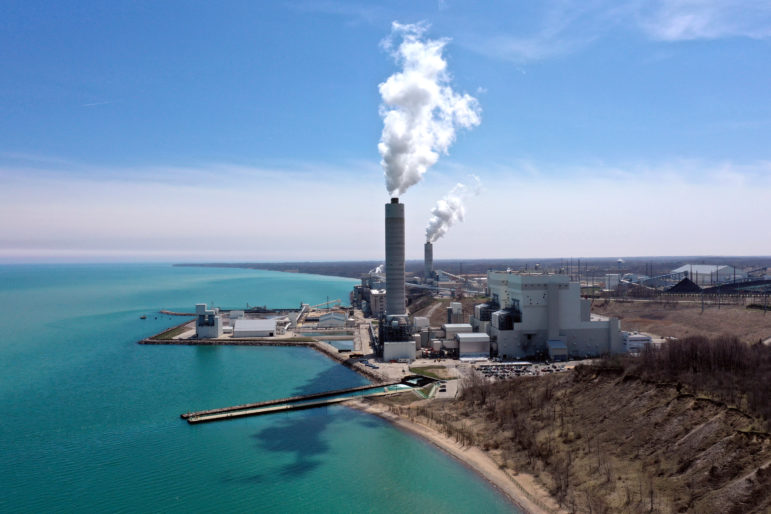In a move to reduce its carbon footprint, the city of Milwaukee is now requiring the majority of purchases of new city-owned vehicles to have low or zero-emissions.
The new ordinance, unanimously passed Tuesday by the Milwaukee Common Council, would allow exceptions for some larger vehicles owned by the city, including fire trucks and garbage trucks. But city leaders hope to transition much of their fleet to clean energy sources, including electric, hybrid or alternative-fuel vehicles, as they work toward a goal of net-zero emissions by 2050.
Pamela Ritger de la Rosa, Milwaukee’s environmental sustainability program manager, said the city has been working for years to reduce its greenhouse gas emissions.
News with a little more humanity
WPR’s “Wisconsin Today” newsletter keeps you connected to the state you love without feeling overwhelmed. No paywall. No agenda. No corporate filter.
“We really wanted the city to be a leader,” Ritger de la Rosa said about the ordinance. “We saw this as a great opportunity to kind of have those cost savings across the board and be reducing those emissions from internal city operations.”
Milwaukee Alderwoman Marina Dimitrijevic introduced the ordinance earlier in March.
“Being the largest city in the state of Wisconsin, when we do anything to reduce our own environmental footprint, meaning being more sustainable … it makes a big difference, and we also want to lead by example,” said Dimitrijevic.
The ordinance says if a city department wants to buy a standard gas or diesel vehicle, it will now be required to do a total-life cost analysis and compare it to low or zero-emission vehicles using the Department of Energy’s vehicle cost calculator. If it turns out that the gas vehicle is cheaper, the city department can purchase the gas vehicle.
“But in most of those cases when you run through that analysis, what you kind of see is that those lower emission vehicles are cheaper in the long run,” Ritger de la Rosa said.

A study from the University of Michigan’s Transportation Research Institute found the average cost to fuel an electric car was $485 a year, compared to $1,117 for a gas-powered vehicle.
“It will be less expensive for us and taxpayers and as a city. But the benefit it produces even far outweighs those cost savings,” Dimitrijevic said. “It makes sense for us in so many ways.”
Milwaukee recently received a grant to convert all parking enforcement vehicles to electric. The Milwaukee Police Department is also now buying hybrid police Ford Interceptors.
But Dimitrijevic believes it’s still too soon to push for low or zero-emission vehicles across the board, as more infrastructure is needed to accommodate them, mainly charging stations. The city is planning to hire a consultant to discover where they can place more electric charging stations.
“Not only would I want 100 percent right away, I would have wanted it a couple of years ago,” Dimitrijevic said. “But we do have to build up to it and one of our challenges is continuing to build the infrastructure, especially the charging stations.”
Ritger de la Rosa also said there’s also a significant cost difference between electric garage trucks and standard garbage trucks currently.
“I think everybody at the city, we want to make these transitions. It’s a matter of finding a way to do it in a way that’s practical, that’s cost-effective,” Ritger de la Rosa said.
“That’s why we’re maybe moving a little more cautiously,” she added.
Ritger de la Rosa said94 vehicles currently run on compressed natural gas, 72 are hybrid vehicles and 13 are electric vehicles. That’s out of around 2,500 vehicles the city currently owns or leases.
There’s also a possibility the ordinance and other efforts to reduce emissions will help the city receive more federal funding in the future for electric vehicles and charging stations, including from the Inflation Reduction Act and the Bipartisan Infrastructure Law. The Inflation Reduction Act passed by Congress last year devoted nearly $370 billion to fight climate change and shift to clean energy. That includes tax credits of up to $7,500 for people to buy electric vehicles.
“As we as a city are applying for federal funding, we are competing against other cities across the country and so the more policies we have in place and the more we can show our commitment that we do want to decarbonize, and save money and reduce pollution in the city, that just makes our application for federal funding that much stronger,” Ritger de la Rosa said.

Milwaukee Mayor Cavalier Johnson said he approves of the shift.
“The new ordinance puts the City on a path toward adopting new technologies while balancing cost-effectiveness and ensuring the department’s ability to carry out core functions,” Johnson said in a press release. “Transitioning our fleet to low and zero-emissions vehicles will save the city money from reduced fuel and maintenance costs.”
Last year, the Wisconsin Department of Transportation submitted its plan to the federal government for placing around 60 charging stations within 50 miles of designated highways known as alternative fuel corridors. Under the state’s plan, around 1,900 miles in the state would be covered by the network of charging stations.
In Phoenix, a waste management company recently announced its first fleet of electric garbage trucks. Those are expected to be used in the city later this year, and expand to other cities next year.
Meanwhile, the city of Madison began to use the Volterra fire truck last year, which the city believes is the first zero-emission electric fire truck in use in North America, according to a report from Channel 3000. The Milwaukee County Transit System also unveiled its first battery electric bus last year, which will be used later this year.
Wisconsin Public Radio, © Copyright 2026, Board of Regents of the University of Wisconsin System and Wisconsin Educational Communications Board.







